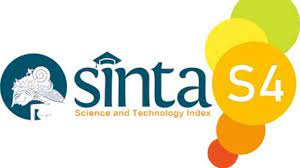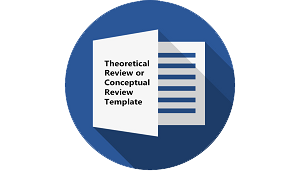INTERPERSONAL FUNCTION OF AMERICAN POLITICAL SPEECH (SYSTEMIC FUNCTIONAL LINGUISTICS APPROACH)
DOI:
https://doi.org/10.30957/ijoltl.v7i1.626Keywords:
Interpersonal function, speech, and SFLAbstract
This study is concerned with the interpersonal function analysis of American political speech text, by taking an example of first Obama's victory speech, based on Systemic Functional Linguistics theory (SFL). The speech text was modified into clauses which were subsequently analyzed in accordance with the goal of the analysis. The study revealed that the speech established an intimate relationship and a close distance with the audience which enables speaker to gain support and exchange information through the use of linguistics resources that are declarative clause in the mood structure, modality, and pronoun "we". This study has a great impact on language teaching and learning in terms of maintaining social relationships and exchanging meanings between teachers and students during their interactions in the classroom by taking into account the link between linguistic resources and the nature of text both spoken and written.
Downloads
References
Brookes, G., & Mcenery, T. (2019). The utility of topic modelling for discourse studies: A critical evaluation. Discourse Studies, 21(1), 3–21. https://doi.org/10.1177/1461445618814032
Cartagena, M. C. C., & Prego-vázquez, G. (2018). Participation frameworks and socio-discursive competence in young children : The role of multimodal strategies. Discourse Studies, 21(2), 1–24. https://doi.org/10.1177/1461445618802656
Da Cunha, I. (2019). A corpus-based analysis of textual genres in the administration domain. Disocurse Studies, 22(1), 1–29. https://doi.org/10.1177/1461445619887538
Eggins. S.1994. An Introduction to Systemic Functional Linguistics. London: Pinter
Fetzer, A., & Bull, P. (2012). Doing leadership in political speech : Semantic processes and pragmatic inferences. Discourse & Society, 23(2), 127–144. https://doi.org/10.1177/0957926511431510
Hopke, J. E., & Simis, M. (2016). Response to ‘ Word choice as political speech ’: Hydraulic fracturing is a partisan issue. Public Understanding of Science, 26(1), 124–126. https://doi.org/10.1177/0963662516643621
Halliday, M.A.K. 1985. Introduction to Functional Grammar. London: Edward Arnold
Halliday, M. A. K. 1994. An introduction to functional grammar. London: Arnold.
Horváth, J. (2005). Critical Discourse Analysis of Obama ’s Political Discourse. Language, literature and culture in a changing 45–56.
Kelly, C. R. (2020). Donald J . Trump and the rhetoric of ressentiment. Quarterly Journal of Speech, 106(1), 2–24. https://doi.org/10.1080/00335630.2019.1698756
Martin, J.R. 1992. English Text: System and Structure, Amsterdam: John Benjamins Publishing Co.
Matthiessen, C. 1990. Lexico Grammatical Cartography: English Systems. Department of Linguistics, University of Sydney: Miemo.
Moragas-fernández, C. M., Calvo, M. M., & Capdevila, A. (2018). The process en route: the metaphor of the journey as the dominant narrative for the political discourse in Catalonia. Critical Discourse Studies, 15(5), 1–23. https://doi.org/10.1080/17405904.2018.1468787
Nartey, M. (2018). ‘ I shall prosecute a ruthless war on these monsters … ’: a critical metaphor analysis of discourse of resistance in the rhetoric of Kwame Nkrumah. Critical Discourse Studies, 16(2), 1–18. https://doi.org/10.1080/17405904.2018.1535987
Schubert, C. (2019). ‘ OK , well , first of all , let me say …’: Discursive uses of response initiators in US presidential primary debates. Discourse Studies, 21(4), 438–457. https://doi.org/10.1177/1461445619842734
Schumacher, G., Hansen, D., Velden, M. A. C. G. Van Der, & Kunst, S. (2019). A new dataset of Dutch and Danish party congress speeches. Research and Politics, 6(2), 1–7. https://doi.org/10.1177/2053168019838352
Silke, H., Quinn, F., & Rieder, M. (2019). Telling the truth about power ? Journalism discourses and the facilitation of inequality. Critical Discourse Studies, 16(3), 1–7. https://doi.org/10.1080/17405904.2019.1568897
Stubbs, M. 1983. Discourse Analysis: The Sociolinguistic Analysis of Natural Language. University of Chicago.
Wang, J. (2010). A Critical Discourse Analysis of Barack Obama s Speeches. Journal of Language Teaching and Research, 1(3), 254–261. https://doi.org/10.4304/jltr.1.3.254-261
Zhan, H., & Huang, S. (2018). Critical genre analysis : investigating interdiscursive performance in professional practice. Critical Discourse Studies, 15(5), 1–4. https://doi.org/10.1080/17405904.2018.1468788
Downloads
Published
How to Cite
Issue
Section
License
Authors who publish with this journal agree to the following terms:
- Authors retain copyright and grant the journal right of first publication with the work simultaneously licensed under a Creative Commons Attribution-ShareAlike 4.0 International License that allows others to share the work with an acknowledgement of the work's authorship and initial publication in this journal.
- Authors are able to enter into separate, additional contractual arrangements for the non-exclusive distribution of the journal's published version of the work (e.g., post it to an institutional repository or publish it in a book), with an acknowledgement of its initial publication in this journal.
- Authors are permitted and encouraged to post their work online (e.g., in institutional repositories or on their website) prior to and during the submission process, as it can lead to productive exchanges, as well as earlier and greater citation of published work (See The Effect of Open Access).












